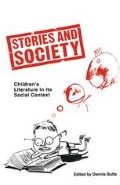Abstract
Winnie-the-Pooh and The House at Pooh Corner are among the most famous and successful of children’s books, but they are not generally regarded as being among the most famous and successful fantasies. Yet they are classic examples of the domestic fantasy, a genre that encapsulates the distinctive features of fantasy in general, and interrelates the adult and children’s forms of it.
Access this chapter
Tax calculation will be finalised at checkout
Purchases are for personal use only
Preview
Unable to display preview. Download preview PDF.
Notes
Katie Stewart, The Pooh Cook Book, (London: Methuen, 1971)
Benjamin Hoff, The Tao of Pooh, London: Methuen, 1982
Frederick R. Crews, The Pooh Perplex, (New York: Dutton, 1965).
Alison Lurie, Don’t Tell the Grown Ups, (Boston: Little, Brown, 1990), p. 145.
See Sullivan, above; and Rosemary Jackson, Fantasy: the literature of subversion, (London: Methuen, 1981).
Eleanor Cameron, The Green and Burning Tree, (Boston: Little, Brown, 1969), pp. 16–17.
Margery Fisher, Classics for Children and Young People, (South Woodchester: Thimble Press, 1986), p. 9.
See Christopher Milne, The Enchanted Places, (London: Eyre Methuen, 1974).
See Gillian Avery, ‘The Cult of Peter Pan’, Word and Image 2, 2, April–June, 1986, p. 177
Rawle Knox (ed.), The Work of E. H. Shepard, (London: Methuen, 1979), pp. 112–13.
Sam Leaton Sebasta and William J. Iverson, Literature for Thursday’s Child, (Chicago: Science Research Associates, 1975), p. 179.
A. A. Milne, The House of Pooh Corner, (New York: Dutton, new edition, 1935).
George MacDonald, A Dish of Orts, (London: Newnes, 1905), p. 314.
A. A. Milne, It’s Too Late Now (London: Methuen, 1939), p. 242.
A. A. Milne, Winnie-the-Pooh (New York, Dutton, new edition, 1935).
Roger Sale, Fairy Tales and After, (Cambridge, Mass.: Harvard University Press, 1978), p. 17.
See Peter Hunt, Criticism, Theory, and Children’s Literature, (Oxford: Blackwell, 1991), pp. 57–60
Bruno Bettelheim, The Uses of Enchantment, (New York: Knopf, 1976), pp. 45–7.
Margaret Blount, Animal Land, (New York: Morrow, 1974), p. 170.
John W. Griffith and Charles H. Frey (eds), Classics of Children’s Literature, (New York: Macmillan, 1981), p. 939.
Quoted by Humphrey Carpenter and Mari Prichard, The Oxford Companion to Children’s Literature, (Oxford: Oxford University Press, 1984), p. 576.
Nicholas Tucker, The Child and the Book, (Cambridge: Cambridge University Press, 1981), p. 98.
Editor information
Editors and Affiliations
Copyright information
© 1992 Dennis Butts and Editorial Board, Lumière (Co-operative) Press Ltd
About this chapter
Cite this chapter
Hunt, P. (1992). Winnie-the-Pooh and Domestic Fantasy. In: Butts, D. (eds) Stories and Society. Insights. Palgrave Macmillan, London. https://doi.org/10.1007/978-1-349-22111-0_8
Download citation
DOI: https://doi.org/10.1007/978-1-349-22111-0_8
Publisher Name: Palgrave Macmillan, London
Print ISBN: 978-0-333-52247-9
Online ISBN: 978-1-349-22111-0
eBook Packages: Palgrave Literature & Performing Arts CollectionLiterature, Cultural and Media Studies (R0)

